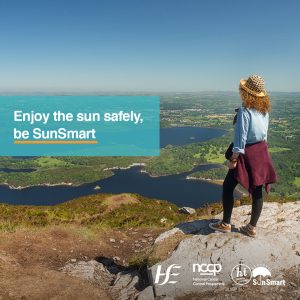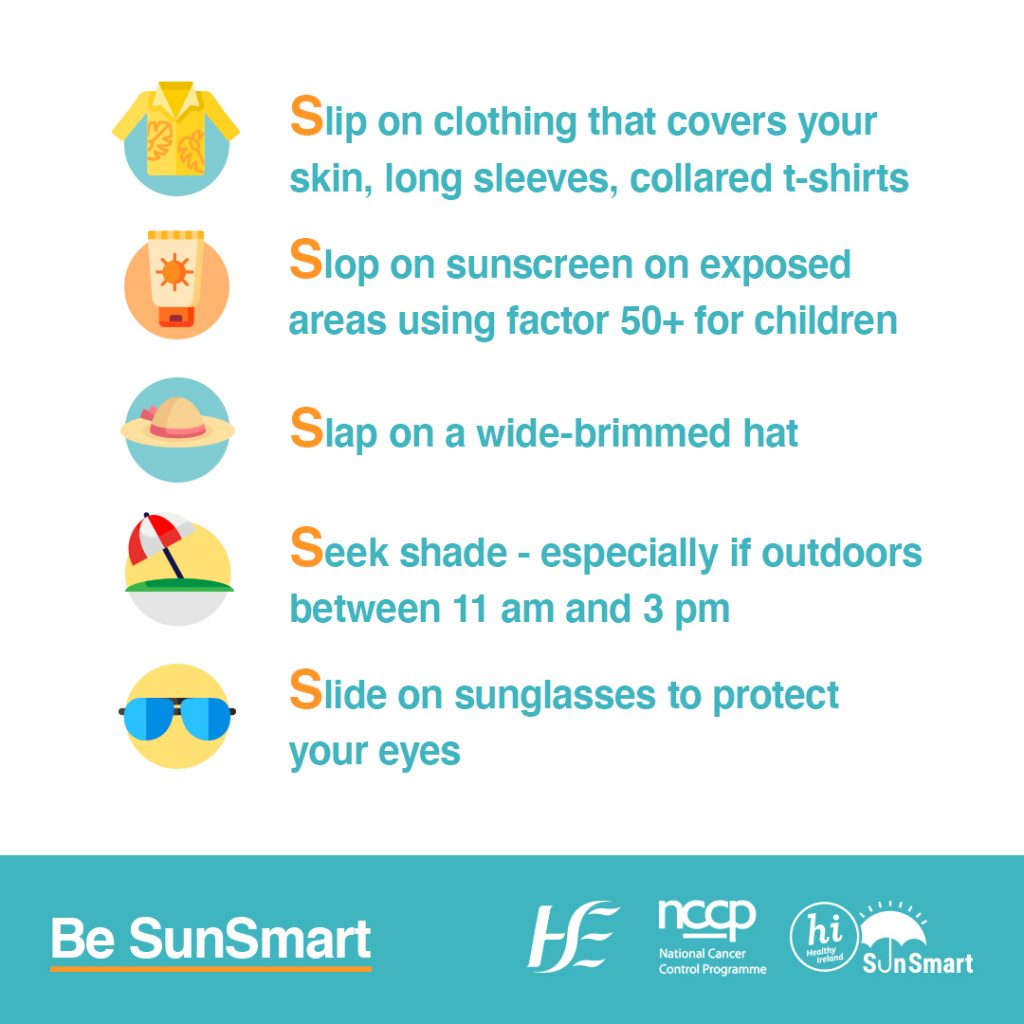The exceptionally warm weather we are experiencing at the moment is a time for us all to enjoy being outside, but the HSE would like to encourage people to take extra care when in the sun over the coming days.
Look out for others around you, especially individuals who may be more vulnerable to the effects of heat such as older people, young children and babies.
Be SunSmart:
-Regularly and liberally apply sunscreen that has a sun protection factor of at least 30+ for adults and 50+ for children
-Stay out of direct sunlight for prolonged periods as much as possible during the day, especially between the hours of 11am to 3pm when UV is strongest
-Wear light and loose-fitting clothing that covers your skin, wear a hat and sunglasses
-Make sure you have enough water to drink; an adult needs approximate 2 litres of liquid over 24 hours.
-Other risks to be mindful of during this spell of hot weather are heat exhaustion and heat stroke.
Heat exhaustion is not usually serious if you can cool down within 30 minutes. Signs of heat exhaustion include headache, dizziness and confusion, loss of appetite and feeling sick, fast breathing or pulse, high temperature of 38C or above and being very thirsty.
If not treated this can lead to heatstroke, which means the body is no longer able to cool itself down and this needs to be treated as an emergency.
If you feel unwell, or you or your children display any of the above symptoms immediately move to a cool place, rest and hydrate. If needed, seek medical attention.
How to keep cool:
- Minimise unnecessary heating – turn off central heating, electrical equipment and lights that are not needed.
- Use natural ventilation such as open windows when the air feels cooler outside than inside (e.g. at night) and where it is safe, secure and feasible to do so. Increase air flow through buildings wherever possible.
- Evaporative cooling – dampening your skin may help keep you cool.
- If you are using air conditioning, make sure it is using a fresh air supply, which is important to prevent spread of COVID-19.
- Electric fans need to be used with caution, as they may not be safe for higher temperatures and should not be used where a person may be incubating or a case of COVID-19.
If you go swimming be cautious and remember the rules below:
- Swim with others, never alone
- Supervise children at all times
- Don’t stay in the water too long
- Wear a lifejacket when boating
- Swim close and parallel to shore
- Never swim after drifting objects
- Beware of hidden hazards and currents
- Swim between flags and be sure to know your flags at the beach or lake
If you or anyone else is struggling contact the emergency services immediately by calling 112 or 999.
More information on being SunSmart, along with Sun Safety information for babies and children is available on hse.ie

